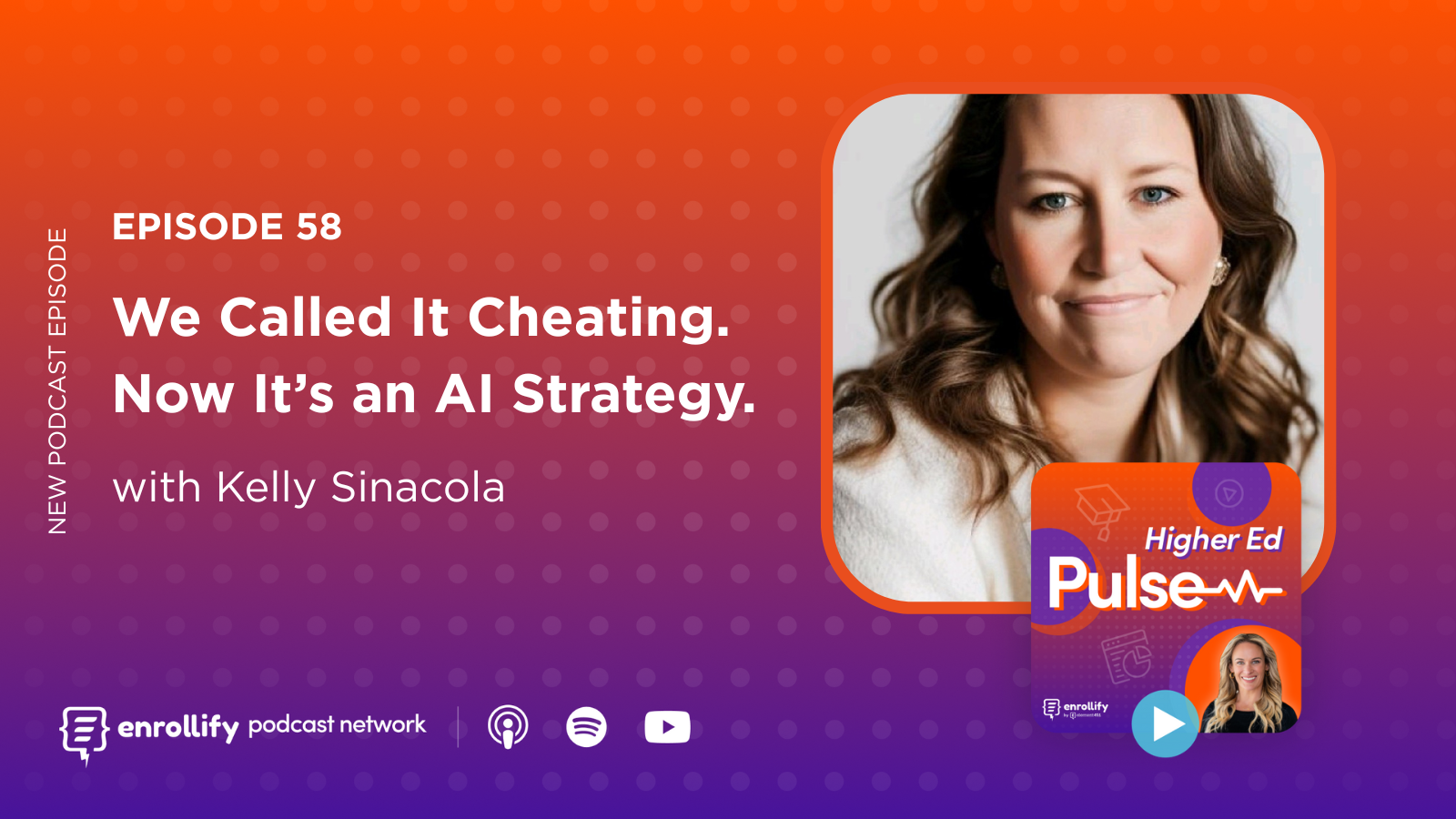About the Episode
About The Episode:
In this live episode of Generation AI, hosts Ardis Kadiu and JC Bonilla dive into the groundbreaking shifts happening in AI-powered search technology. They discuss how major players like OpenAI, Google, and Meta are driving a paradigm shift in online search. Joined by Ty Fujimura, an expert in UX and SEO, they explore how generative AI is transforming the way users interact with information, from natural language search to real-time personalization. This conversation highlights both the opportunities and challenges for marketers, content creators, and higher education professionals looking to stay ahead in an AI-driven digital landscape.
Key Takeaways
- Natural Language Search: Generative AI enables search without keywords, allowing users to communicate queries conversationally, transforming how they find information.
- Personalization in Real Time: AI-powered search adapts based on user behavior, location, and even time of day, enabling a more tailored information retrieval experience.
- The Role of Authentic Content: As AI search engines source information from various platforms, producing authentic, context-rich content across multiple channels is key to maintaining brand presence.
- Impact on SEO and Website Strategy: Traditional SEO practices are shifting; now, the emphasis is on creating diverse, authoritative content that AI can reference and summarize effectively.
- Predicted Drop in Organic Traffic: As AI search improves, website visits may decline, making social media and paid search essential for driving traffic and engagement.
Episode Summary
What Is AI-Powered Search, and Why Does It Matter?
In this episode, Ardis and JC discuss the evolution of AI-powered search and how it’s disrupting traditional methods of information retrieval. Unlike traditional keyword-based searches, AI-powered search relies on natural language processing, making it more intuitive and conversational. The hosts highlight how tools like ChatGPT, Perplexity, and Google’s Gemini are enabling users to ask complex questions in everyday language, making search experiences feel more interactive and responsive. By bridging the gap between keywords and conversation, AI is setting the stage for a more user-centric internet, particularly significant for higher education and content-driven industries.
How Does Personalization Transform the Search Experience?
AI-powered search isn’t just conversational; it’s also deeply personalized. According to the hosts, AI can now remember preferences and adapt its responses to individual users based on their browsing habits, location, and even the device they use. Ty Fujimura adds that personalization can extend to contextualizing responses based on user history, allowing searches to align more closely with individual needs and timing. For example, if a user often searches for research articles in the morning, AI could prioritize academic sources. The ability to provide such a customized experience makes it vital for marketers to rethink content strategies, ensuring their material remains relevant across varied user contexts.
How Will AI Change SEO and Content Strategy?
With generative AI reshaping search, SEO is evolving from keyword optimization to content diversification and authenticity. Ty suggests that instead of focusing on keywords, website owners and marketers need to emphasize genuine, unique content. AI now aggregates information from multiple sources, including websites, social media, and forums, to deliver comprehensive answers, bypassing the need for users to click on individual links. In the higher education space, this shift means that content must be readily accessible and informative across channels like Substack, Medium, and even Reddit, as AI pulls from these diverse data streams.
This trend of reduced organic traffic to websites emphasizes the importance of social media as a branding tool and reinforces the value of paid search to drive user engagement. As AI technologies like Perplexity and ChatGPT enhance user experience with organized, real-time search results, it’s clear that SEO strategies must pivot to include broader content ecosystems and a heightened focus on brand authenticity.
What Are the Implications for Content Monetization and Advertising?
One potential challenge discussed is the future monetization of AI-powered search. As AI search tools from companies like OpenAI, Meta, and Google gain popularity, the ad-free experience may not last indefinitely. JC points out that, much like social media before it, AI search platforms could begin incorporating subtle paid influences, raising questions about transparency and the authenticity of information. In the meantime, brands should capitalize on the ad-free landscape by establishing a solid, authentic content presence across platforms AI frequently references.
For marketers, this shift also means strategizing around paid search and social media for direct traffic, as organic traffic from traditional search engines may dwindle. Higher education marketers, for example, can leverage this period by creating content-rich knowledge bases that AI can use to answer specific user questions, building credibility and maintaining visibility in an evolving digital ecosystem.
Connect With Our Co-Hosts:
Ardis Kadiu
About The Enrollify Podcast Network:
Generation AI is a part of the Enrollify Podcast Network. If you like this podcast, chances are you’ll like other Enrollify shows too! Some of our favorites include The EduData Podcast and Visionary Voices: The College President’s Playbook.
Enrollify is produced by Element451 — the next-generation AI student engagement platform helping institutions create meaningful and personalized interactions with students. Learn more at element451.com.















